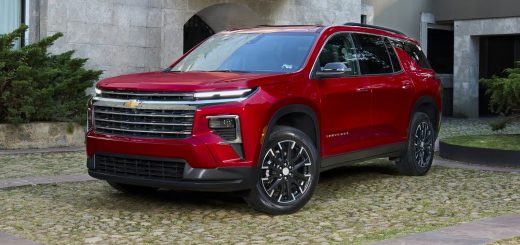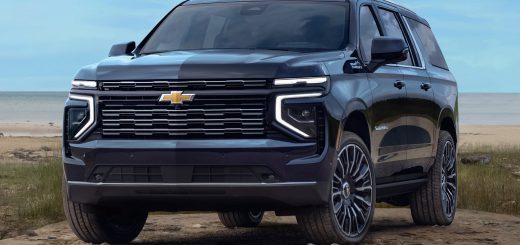GM’s 1,300 employees at the Detroit Hamtramck assembly plant will have to go through a temporary layoff for no less than five weeks as the company has temporarily pulled the plug on the Chevy Volt and Opel Ampera until April 23. Why? Because sales have been less than optimal.
“Even with sales up in February over January, we are still seeking to align our production with demand,” said GM spokesman Chris Lee to the Detroit Free Press.
Last month, Chevrolet sold 1,023 Volts in the U.S., and currently totals 1,626 for the year. Currently, inventory for the Volt stands at 3,596 units, including demos and what’s already in the dealer network. Is it due to the factor that people who have never experienced the Volt are labeling it as a flop? Or is it because it’s expensive? The truth is probably somewhere in the middle, as usual with things like this. Meanwhile, Glenn Beck is laughing.














Comments
The Volt/Ampera assembly line has even less monetary slack than most productions, because General Motors is already losing money on every Volt produced, at least in the initial sense, and is only producing the cars to prove the technology and boost its corporate fuel-economy ratings, so I’m afraid this doesn’t surprise me one bit.
Well, I know how this is going to be spun in the media, but what they don’t realize is that the “old GM” would have just kept the factory going and pile on incentives to get rid of excess inventory. I’m glad that the “new GM” is carefully watching inventory levels and costs. It would be worse to see a fire sale (no pun intended) to get rid of excess Volt inventory. In the past, incentives were killing all the profit on GM’s cars, so I’m glad that past behavior isn’t being repeated. It is painful to the workers (no one likes layoffs, temporary or permanent), but it was the right thing to do.
My only thought is, not everyone is going to like this car, it is a little nichie. The design may not appeal to everyone either, then there is price. I think though that give it time and the vehicle will become more popular, let’s hope so, here is to the Volt; cheers..
Volt is a niche vehicle more appealing to EV enthusiast early adopter types, kinda like Camaro, Corvette, and the like appeal to a specific, relatvely small buyer group. But the Tech is great and will not only come down in cost but also find its way into other vehicles.
I think it’s probably that there are people who still think is expensive, worthless, and there are still people that still worries about the recall… But my parents and I loved it except for that one gripe of I can’t see the front of the car from inside.
I wonder sales would have been like if the volt’s exterior looked like the concept volt did.
A point that someone made on another site, is that so many people live in apartments and don’t have access to power sources.
Not to worry. Sales will pick up…since the price of fuel is approaching $4 per gallon and in some places (like here in Jamaica) the price has risen above $5 per gallon. Realities like that always shock people into the real world. But one of the things that we have to remember is that people who start crying about the price of fuel may really want to buy a Volt…but they really can’t afford to. They probably can’t afford a Prius or a LEAF either…I’m in that very group. Hence, I’m stuck with my 2.0L 16v Mitsubishi Galant, that is suddenly not as fuel efficient as I would hope it would be…
See I was right? There is light at the end of the tunnel. this is good News. Now let’s focus ON Real Cars- Naturally aspirated Muscle.. Corvettes and Camaros.
The Volt perplexes me. I just don’t get why GM would produce a car that is so expensive that is essentially not much different than a Cruze. As a business I would have thought it more prudent to implement battery technology only to the level that it makes economic sense. So I see resources going into the Volt that could have gone into lower cost alternatives that might have benefited more vehicles, or that could have filled the many gaps in their lineup of small cars. The latter is costing GM more customers than it has gained by producing the Volt.
Even though with gas approaching $4 – $5 gallon so you can actually make a payback case depending on your driving habits and cost of electricity (which is 8.3 cents per KWH in my town, and mostly produced from hydro with some nuclear), the real reason GM produced the car was to show that they could and increase consideration of GM products. It’s just too bad that politics and a NHTSA mistake got in the way.
“a car that is so expensive that is essentially not much different than a Cruze”
Really now?
I’ve got 44kms (27mi) to commute every day. It’s in those 44kms that seperates a Cruze from a Volt.
Regular gas here (coverted) works out to a $5.18USD/Gal and that’s with regulation to keep the prices stable and predictable (none of this daily spiking nonsense).
There’s a lot to seperate the Cruze from the Volt; in this case, gas prices will tell you the difference between the two in no uncertain terms.
Really true!! The driving dynamics of the Volt is way different THAN a Cruze and that’s a fact!
I think the Volt will get a sales jolt in California for two primary reasons. 1) The price of gas is extremely high. It’s hit $5/gallon in many places and it looks like it’s going to stay there for a while. 2) The Volt just got approved for the highly-coveted HOV sticker that now only applies to alternative fuel and some plug-in EVs. For example, the Honda Civic Natural Gas can get the sticker but the Civic Hybrid can’t. The “regular” Prius no longer qualifies for the sticker, but the Plug-In Prius does. Getting single occupant access to the carpool lanes is a big deal in Los Angeles where Carmageddon happens daily.
Assuming the federal tax credit of $7500 is still available, along with the above conditions, I think the Volt is still an attractive buy for many.
That tax credit is what bothers me. I would rather see the government put the money into R&D rather than into buying incentives. No doubt electric cars and hybrids are getting very close as batteries improve — probably just one generation away from being truly viable to replace gas vehicles.
GM didn’t need to go into production with the Volt in order to have one ready once battery technology is more competitive. In the meantime GM needs to grow in some other areas, having lost Saturn and Pontiac. Time and resource allocation are important in a competitive market. Other companies, particularly Hyundai, are being aggressive with offerings in areas lost by the GM restructuring. I am one of the lost customers once very loyal to a GM brand.
Bringing a car into production is the only way to truly understand a vehicles’s technology and faults, and how to fix/improve the car. You can only do so much on paper. The innovations required to create the volt will benefit all GM vehicles in the years to come. Not to mention GM has a head start in the electric market. Since they were the first ones to come out with a first gen electric car, they will be the first ones to come out with the secong gen electric car, which, as you say, will be a viable alternative to a gas car and wont need to be subsidized. And while there losing money on the volt, I think the ELR is going to pay off big time, its probably going make a little profit and expand Cadillac reach and image, which will result in selling more profitable vehicles like the ATS and XTS.
On Hyundai, watch their bubble burst, or at least a slow down of sales, their most important and best cars, sonata and elantra, wont see a redisgn for at least another 4 years, and while they wont admit it, their luxury eqqus sedan has been a dud, and their azera(which hasnt been released yet) / genesis does not really compete well with the likes of the lexus es, lacrosse, taurus, and TL. I think GM’s biggest threats are from Ford and Volkswagen and maybe Toyota in a few years after they get firmly back on their feet.
As a conservative, the tax rebate bothers me too, but two points:
1. The rebate is neccessary to let the volt, leaf, focus ev, and the like survive in the market and make it possible for the gen 2 of electric cars to come out. There is no possible way for gen 2 to come out before gen if the automakers are to be able to afford to build an electric car.
2. Its not costing us much. The rebate is only upto 100k cars sold, which at that point it will expire, so its only going to cost us 750 million, while that may say sound like a big number, its not compared to the sheer size of our government and deficit. Our deficit, at almost 15 trillion, is 20,000 times as much as the rebate. So really its not costing us much and its being put to relative good use when to compared to other things our government wastes money on(like sending dead people social security checks!)
One of the problems is you can’t get the economies of scale necessary to bring down the battery costs until you sell enough of them. Simply waiting a few years to launch the product wouldn’t have significantly brought cost down, that’s the purpose of the $7500 tax credit for the first 200,000 Volts (which at this pace might last until the second generation Volt).
And from a business perspective, who wouldn’t build a product if the federal government will give customers an 18% discount? Those tax credits help lessen the blow for the early adopters, who are the ones that making it possible for the price to come down in the future. I’m hopeful that GM partners with Envia to cut battery costs in half in 3-4 years, in time for Volt 2.0, but that start up wouldn’t have made those investments in R&D if there wasn’t going to be a market for them and the tax credits provide some assurance there will be. By helping encourage demand for EVs the government is creating market conditions where investors and entrepreneurs have the incentives to invest in R&D, and I’d rather they do it than the government because there will be many companies taking different approaches with venture capital assuming the risk instead of Uncle Sam. Losing money with no ROI in the private sector is unsustainable, whereas in government it’s sort of just oh well, shrug shoulders. Better that those funds go directly to consumers when demand is so depressed (recession has put us half way into a lost decade, gas prices threaten to ensure one)